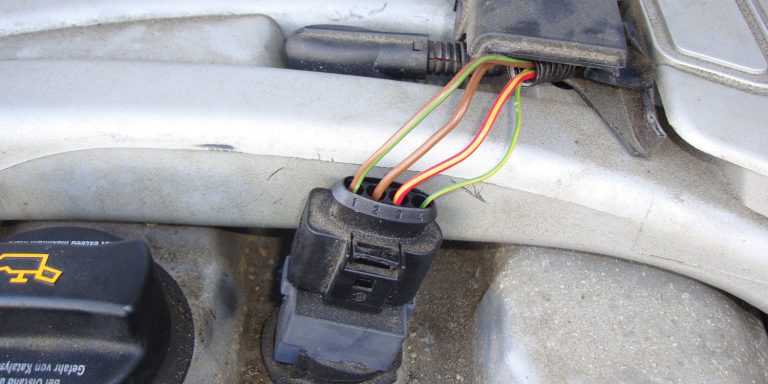Introduction:
Internal combustion engines rely on precise timing to ignite the air-fuel mixture within their cylinders, creating the power that propels vehicles. However, when ignition occurs prematurely, before the piston reaches the top of its compression stroke, it can lead to pre-ignition or detonation, causing serious damage to the engine. This article delves into the causes, effects, and effective strategies to rectify pre-ignition and detonation, empowering mechanics and enthusiasts alike with the knowledge to restore optimal engine performance.

Image: www.2carpros.com
Defining Pre-Ignition and Detonation:
Pre-ignition, also known as pre-knock, transpires when a portion of the air-fuel mixture ignites prematurely within the combustion chamber before the spark plug initiates the intended ignition process. This sporadic combustion can stem from hot spots within the engine, caused by carbon deposits, glowing combustion chamber components, or overheated exhaust valves. In contrast, detonation, frequently referred to as ‘knock’ or ‘pinging,’ is a more severe form of uncontrolled ignition, where a large portion of the mixture spontaneously ignites, creating shockwaves that reverberate throughout the engine.
Consequences of Pre-Ignition and Detonation:
Both pre-ignition and detonation can have detrimental effects on an engine’s health and performance. They subject the engine components to excessive heat and pressure, potentially leading to catastrophic failures. Premature ignition can weaken piston rings, erode cylinder walls, and cause exhaust valve burnout, while detonation can escalate into fractured pistons, shattered connecting rods, and irreparable engine damage. It is crucial to address these issues promptly to prevent further complications.
Common Causes of Pre-Ignition:
Carbon buildup within the combustion chamber is a primary culprit for pre-ignition, as these deposits act as hotspots, triggering premature ignition. Overheating spark plugs with excessive heat range ratings can also instigate pre-ignition, as can excessively lean air-fuel ratios. Faulty ignition timing, allowing the spark to jump the gap prematurely, and low-octane fuel that ignites more readily than recommended, contribute to pre-ignition.
Causes of Detonation:
Detonation, the more severe form of uncontrolled ignition, typically arises from several factors. High compression ratios, prevalent in high-performance engines, elevate cylinder temperatures, increasing the likelihood of detonation. Low-octane fuels, which possess a lower resistance to self-ignition, are more prone to detonation under high-load conditions. Overly advanced ignition timing exacerbates detonation by initiating the ignition process too early in the compression stroke. Carbon buildup within the combustion chamber and overheated engine components can further promote detonation.
Effective Remedies for Pre-Ignition and Detonation:
Combating pre-ignition and detonation demands a multifaceted approach. Regularly cleaning the combustion chamber to eliminate carbon buildup is paramount. Upgrading to colder spark plugs, with a lower heat range rating, can effectively mitigate pre-ignition caused by excessive heat. Maintaining proper ignition timing, ensuring the spark occurs at the optimal moment, is crucial. Increasing the octane rating of the fuel, opting for higher-octane fuels, enhances resistance to self-ignition, effectively suppressing detonation.
Additional Preventive Measures:
Beyond addressing the root causes, preventive measures can further safeguard against pre-ignition and detonation. Using fuel additives designed to reduce carbon deposits can minimize the accumulation of hotspots within the combustion chamber. Installing an engine knock sensor, a device that detects the onset of detonation, allows the engine management system to retard ignition timing, mitigating the severity of detonation. Water or methanol injection, techniques employed in high-performance engines, can effectively lower combustion temperatures, reducing the propensity for detonation.
Conclusion:
Pre-ignition and detonation pose significant threats to internal combustion engines, potentially leading to catastrophic damage if left unchecked. Understanding the causes and effects of these uncontrolled ignition phenomena is crucial for mechanics and enthusiasts. By implementing the effective strategies outlined in this article, proactively addressing these issues, and employing preventive measures, it is possible to ensure optimal engine performance, prolonging the life of the engine and maximizing its efficiency.

Image: automotivetechinfo.com
How To Fix Pre Ignition